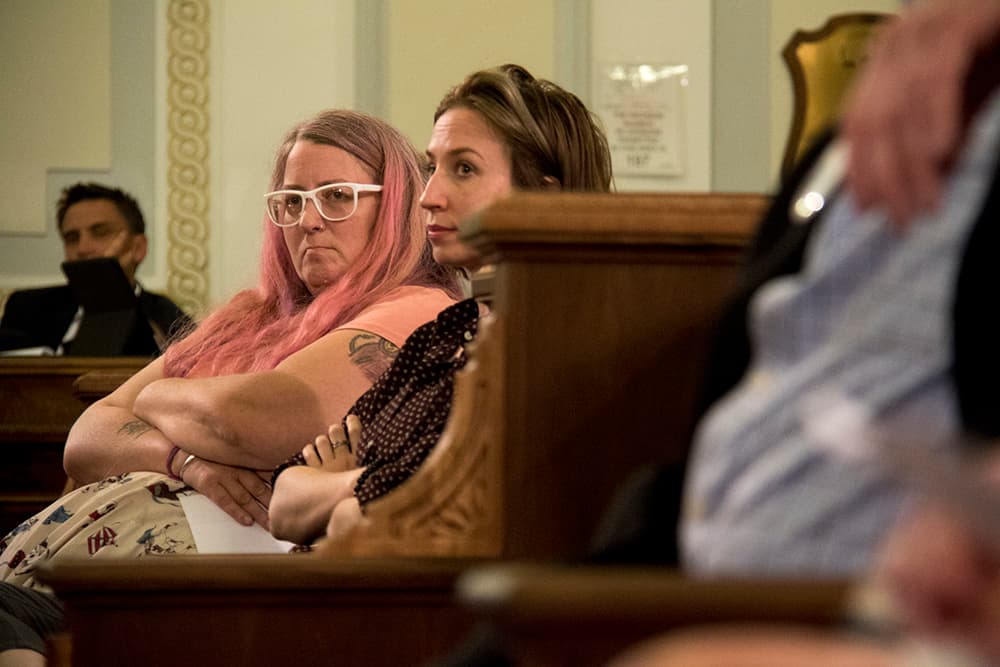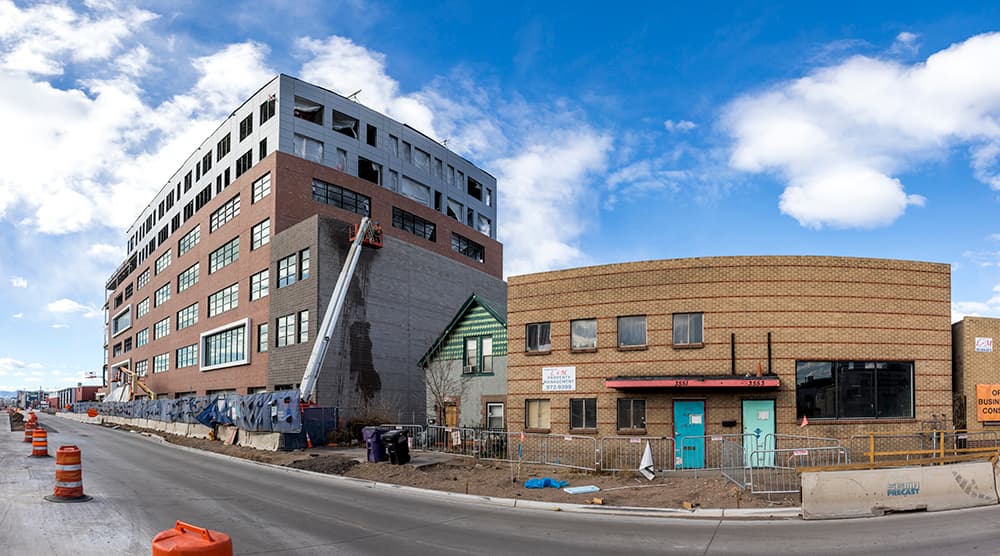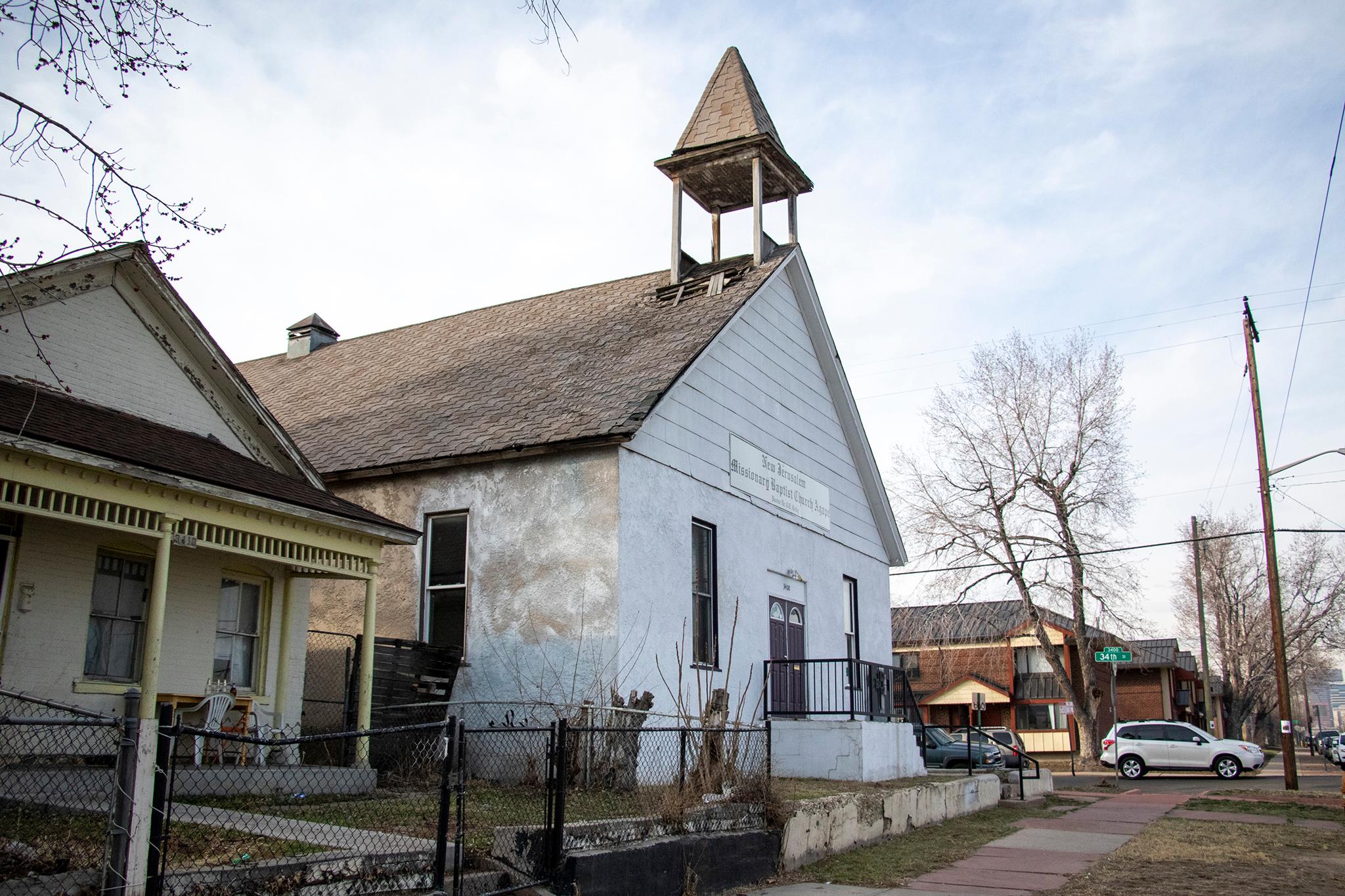The old church that once housed Denver DIY space Juice Church has sold, and the new owner has plans for townhomes.
The structure, which city records show dates to 1892, has been sold by Andy Feinstein's EXDO Management for $700,000, county records show. The buyer, Samuel Leger, told BusinessDen he plans to demolish the structure and build five townhomes on the 0.14-acre site.
City records show Feinstein bought the building from the church for $182,000 in 2013. He'd welcomed Juice Church as tenants, but it was among the DIY venues inspected by the city after a fire at Oakland DIY space Ghost Ship killed 36 people in December 2016. As Denverite reported at the time, code violations were noted but did not lead to an eviction of the artists and musicians living there. They were given smoke detectors, carbon monoxide detectors and "basic life safety information."
Less than half a year after the inspection, Juice Church left the building.
They were given about three months to find new accommodations, according to Louise Martorano, executive director of RedLine Contemporary Art Center and an administrator of Denver's Safe Creative Spaces fund. She spoke with one of the artists who lived there before speaking with Denverite and was told the artists have since scattered -- some to other states with more affordable housing.

What happened at 3400 Lawrence St. highlights the enormous financial hurdles in front of artists and DIY-friendly landlords.
Feinstein told Denverite on Wednesday that the building was a "multi-hundred-thousand-dollar problem."
"We were willing to spend money without even raising their rent to keep them in there. It's just that gap was too big," he said.
Feinstein is of course not the first person to point out the high cost of getting a DIY space up to code. When Denver created its Safe Occupancy Program as a way to guide people living and working in these places through getting them legal, artists said it wasn't any good because they don't have money for the necessary repairs and upgrades.
"It's about money," said Lauri Lynnxe Murphy, an artist and member of Amplify Arts, said at a July 2017 City Council meeting. "If this is going to succeed, we need money."
The city responded by creating a Safe Creative Spaces Fund.
"I want to be clear that the city was willing and wanting to partner with us to ensure that the space was brought up to code so that it was safe for folks to both live and work there. Unfortunately, the costs to bring it up to code were so prohibitive that we couldn't justify that expense," Feinstein said. "That said, the city worked with us and we worked with the residents of Juice Church to make sure they had ample time to find a new living situation."
Since the wave of DIY space inspections in late 2016 and early 2017, mainstays Rhinoceropolis and Glob -- the first to be shut down, and whose residents were abruptly evicted -- have gotten up to code and reopened. Glob's John Golter said during a Denverite panel discussion earlier this year that getting his space up to code cost $40,000 to $50,000.
"From the Safe Creative Spaces Fund and what I'm seeing as an administrator of the grant, the costs are extraordinary," Martorano said. "It is crazy. It's like $200,000 a site if they're lucky, if they don't have major work to be done. And granted that's not the average that we've seen. Rhinoceropolis was able to stay within their grant of $50,000. And that was doing it in the most affordable way possible."
"Artists on Santa Fe, with Macy [Dorf]'s space, he's been through hell, and that bill keeps going up," she added. Someone cited him for a decommissioned elevator, and then the citations started stacking up. "It was almost this metastasis of problems."
But even with financial backing, it's still a huge time investment. It took Rhino and Glob two years to reopen. Had Juice Church decided to pursue making their space legally liveable, the people living there would have been out of a home likely for a year or more.
"Not only was it cost-prohibitive to bring the building up to code for any use -- the time it would have taken would have required the artists to physically move out, which is impractical," Feinstein said.

A similar fate looms for the building home to Rhino and Glob. The Brighton Boulevard spaces share a building sitting on land owned by the developers of the Catalyst Health-Tech Innovation campus. Phase one, as it's called, is already physically looming next door.
That sale was made in August 2015, and Rhinoceropolis lease-holder John Gross told me then (while reporting for the Denver Post) that he was told work would begin on phase two in two to four years.
It's now been about four years, but there's been no word on the beginning of construction. A rendering sent out in a recent unrelated press release shows phase two of the campus where Rhino and Glob sit.
Martorano said avoiding these situations in the future will mean educating landlords and artists. It's hard for artists to know what questions to ask when they're moving in somewhere. Unless zoning is your job, it's unlikely you know much about it.
"The city, to their credit, they're calling out a lot of landlords," she said, "like, 'Why are you moving these kids in?'"
But she's seen through her Safe Creative Spaces work that the city, landlords and artists are "willing to come to the table and work together."
"I think financial resources are the biggest barrier to doing that."
Read a full time of Denverite's coverage of DIY in Denver since the Ghost Ship fire here.














